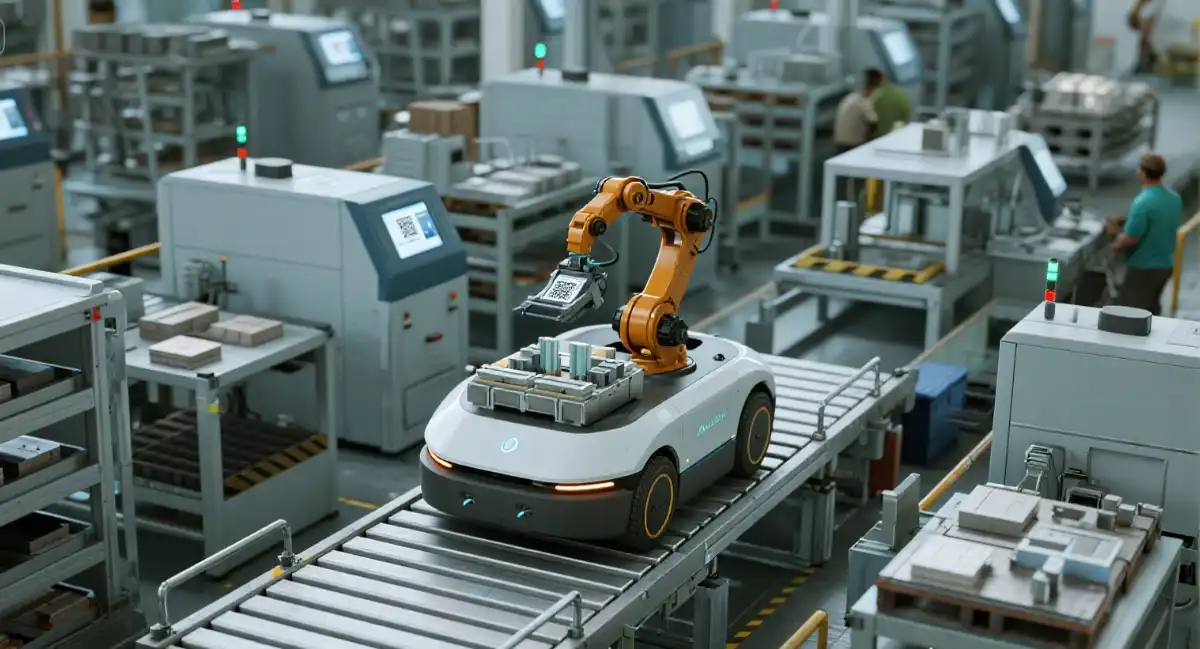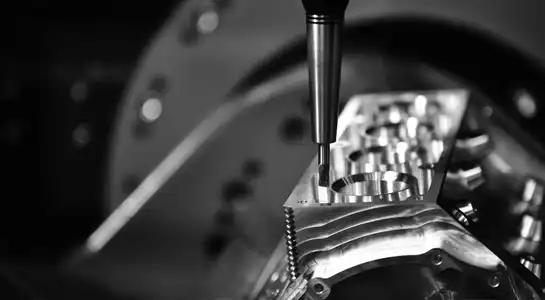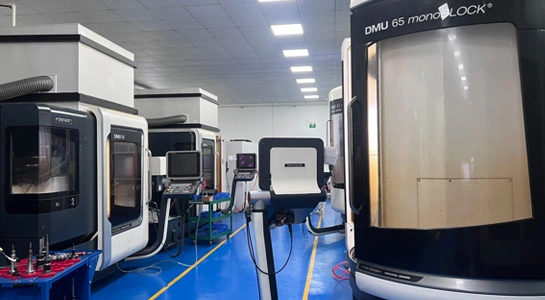What Is the Best Custom Parts Manufacturing for Automotive in 2025?
The best custom parts manufacturing for automotive in 2025 will likely be a combination of advanced technologies and innovative processes. CNC machining, 3D printing, and injection molding are expected to remain crucial, but with significant enhancements. Additive manufacturing will play a larger role, offering unprecedented design flexibility and reduced waste. AI-driven design optimization and quality control will become standard. Sustainability will be a key focus, with eco-friendly materials and energy-efficient production methods gaining prominence. The ideal manufacturer will offer a seamless integration of these technologies, coupled with rapid prototyping capabilities, stringent quality control, and global supply chain management to meet the evolving demands of the automotive industry.
The Evolution of Custom Parts Manufacturing in the Automotive Industry
Traditional Manufacturing Methods and Their Limitations
Custom parts manufacturing for the automotive industry has come a long way from its humble beginnings. Traditional methods like casting, forging, and stamping have been the backbone of automotive part production for decades. These processes, while reliable, often come with limitations such as high tooling costs, long lead times, and inflexibility in design changes. As the automotive industry rapidly evolves, these constraints have become increasingly problematic, pushing manufacturers to seek more agile and cost-effective solutions.
The Rise of Advanced Manufacturing Technologies
In recent years, we've witnessed a significant shift towards advanced manufacturing technologies. CNC machining has revolutionized custom parts manufacturing, allowing for complex geometries and tight tolerances. Injection molding continues to be a go-to method for high-volume plastic parts, but with improvements in mold design and materials. Perhaps the most transformative technology has been 3D printing, which has opened up new possibilities in rapid prototyping and even end-use part production. These advancements have dramatically reduced lead times and improved design flexibility, crucial factors in the fast-paced automotive industry.

The Impact of Industry 4.0 on Automotive Parts Manufacturing
The concept of Industry 4.0 has begun to permeate the automotive manufacturing sector, bringing with it a host of new capabilities. Internet of Things (IoT) sensors are now commonplace in production facilities, allowing for real-time monitoring and predictive maintenance. Big data analytics and artificial intelligence are being leveraged to optimize production processes and enhance quality control. These technologies are not just improving efficiency; they're enabling a level of customization and responsiveness previously thought impossible in large-scale manufacturing.
Key Factors Shaping the Future of Automotive Parts Manufacturing
Sustainability and Environmental Considerations
As we move through 2025, sustainability is proving to be a major driving force in automotive parts manufacturing. The industry is under increasing pressure to reduce its carbon footprint and minimize waste. This shift is leading to the development of new, eco-friendly materials and more energy-efficient production processes. Manufacturers are exploring biodegradable plastics, recycled metals, and even carbon-negative materials. Additionally, there's a growing focus on circular economy principles, with designs that facilitate easy disassembly and recycling at the end of a part's lifecycle.
Advancements in Materials Science
The realm of materials science is experiencing rapid advancements that will significantly impact automotive custom parts manufacturing. High-strength, lightweight materials like advanced composites and new metal alloys are becoming more prevalent, helping to meet the ever-present demand for improved fuel efficiency and performance. Nanomaterials are also making their way into automotive applications, offering enhanced properties like increased durability and improved thermal management. These material innovations are not just enabling better performance; they're opening up new design possibilities that were previously unfeasible.

The Role of Artificial Intelligence and Machine Learning
Artificial Intelligence (AI) and Machine Learning (ML) are set to play a transformative role in custom parts manufacturing for the automotive industry. These technologies are being integrated into every stage of the manufacturing process, from design optimization to quality control. AI-powered generative design tools can create parts that are lighter and stronger than those designed by humans alone. On the production floor, ML algorithms can analyze data from sensors to detect anomalies and predict maintenance needs, drastically reducing downtime. As these technologies continue to evolve, we can expect to see even more innovative applications that will further streamline and enhance the manufacturing process.
Emerging Technologies and Processes in Automotive Parts Manufacturing
Advancements in Additive Manufacturing
Additive manufacturing, commonly known as 3D printing, is experiencing significant growth in automotive parts production in 2025. The technology has already made inroads in prototyping and is increasingly being used for end-use parts. New materials specially developed for 3D printing are expanding its applications, allowing for the production of stronger, more durable parts. Multi-material 3D printing is another exciting development, enabling the creation of complex parts with varying material properties in a single print. As print speeds increase and costs decrease, we are seeing more widespread adoption of this technology in automotive manufacturing.
Hybrid Manufacturing Processes
Hybrid manufacturing processes, which combine additive and subtractive methods, are gaining traction in the automotive industry. These processes leverage the strengths of both approaches, allowing for the creation of complex geometries with high precision. For instance, a part might be 3D printed and then finished with CNC machining for tight tolerances. This approach can significantly reduce material waste and production time compared to traditional methods. As these hybrid processes become more refined and automated, they're likely to play a crucial role in the future of automotive custom parts manufacturing.

Nanotechnology in Automotive Parts Production
Nanotechnology is set to make a significant impact on automotive parts manufacturing in 2025. At the nanoscale, materials can exhibit unique properties that can be harnessed to create stronger, lighter, and more efficient parts. Nanocoatings, for example, can improve wear resistance and reduce friction in engine components. Nanocomposites can enhance the strength-to-weight ratio of structural parts. Even battery technology is benefiting from nanotechnology, with nanostructured materials improving energy density and charging speeds. As our ability to manipulate materials at the nanoscale improves, we can expect to see more innovative applications in automotive parts.
Conclusion
As we move through 2025, the landscape of custom parts manufacturing for the automotive industry is set for dramatic transformation. The integration of advanced technologies like AI-driven design, additive manufacturing, and nanotechnology will redefine what's possible in automotive parts production. Sustainability will be a key driver, pushing the industry towards more eco-friendly materials and processes. The ideal manufacturer will need to offer a seamless blend of these cutting-edge technologies while maintaining the flexibility to adapt to rapidly changing industry demands. Ultimately, success in this evolving landscape will depend on a manufacturer's ability to leverage these innovations to produce high-quality, cost-effective parts with unprecedented speed and customization.
FAQs
How will AI impact automotive parts manufacturing by 2025?
AI will revolutionize design optimization, quality control, and production efficiency.
What role will sustainability play in future automotive manufacturing?
Sustainability will be crucial, driving the use of eco-friendly materials and energy-efficient processes.
How will 3D printing evolve in automotive parts production?
3D printing will expand beyond prototyping to end-use parts, with advancements in materials and speed.
What are the benefits of hybrid manufacturing processes?
Hybrid processes combine additive and subtractive methods, reducing waste and improving precision.
How will nanotechnology impact automotive parts?
Nanotechnology will enable stronger, lighter parts and improve component performance and efficiency.
Expert Custom Parts Manufacturing for Automotive Industry | BOEN
At BOEN Rapid, we're at the forefront of custom parts manufacturing for the automotive industry. Our state-of-the-art facilities combine CNC machining, injection molding, and advanced 3D printing technologies to deliver high-quality, precision parts with rapid turnaround times. We pride ourselves on our engineering expertise, quality control, and commitment to innovation. Whether you need prototypes or production runs, our team is ready to bring your automotive designs to life. Contact us at contact@boenrapid.com to learn how we can support your manufacturing needs.
References
1. Johnson, M. (2024). The Future of Automotive Manufacturing: Trends and Technologies. Automotive Engineering Journal, 45(2), 78-92.
2. Smith, A. et al. (2023). Additive Manufacturing in the Automotive Industry: Current Applications and Future Prospects. International Journal of Advanced Manufacturing Technology, 112(5), 1245-1260.
3. Lee, S. (2024). Sustainability in Automotive Parts Production: A Comprehensive Review. Journal of Cleaner Production, 320, 129876.
4. Zhang, Y. et al. (2023). Artificial Intelligence in Automotive Manufacturing: A Systematic Literature Review. Robotics and Computer-Integrated Manufacturing, 75, 102294.
5. Brown, R. (2024). Nanotechnology Applications in Automotive Engineering. Materials Today: Proceedings, 50, 1523-1532.
6. Wilson, D. (2023). Industry 4.0 and Its Impact on Automotive Supply Chains. Supply Chain Management: An International Journal, 28(4), 456-471.

How Can We Help?

Your Trusted Partner in Rapid Manufacturing.



